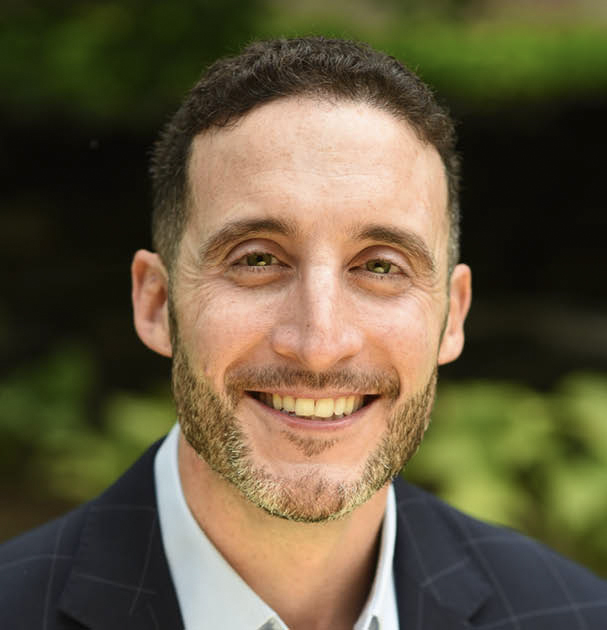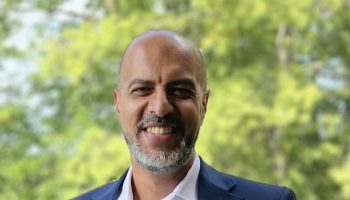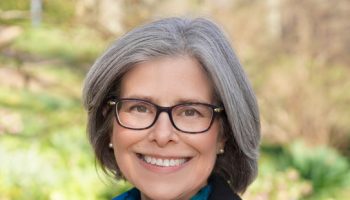
Kaitlyn Finchler
Contributing Writer
At this moment in time, the world and America might look frightening to some. However, many people believe there is light at the end of the tunnel, if they’re willing to work for it. Rabbi Elan Babchuck — executive vice president at Clal, the National Jewish Center for Learning and Leadership, and founding director of Glean Network — is one of those people. He will deliver his lecture “The Ties That Bind (Again): How Religion is Reweaving the Fabric of American Life” at 2 p.m. today in the Hall of Philosophy for the Week Nine Interfaith Lecture Series theme, “Past Informs Present: Traditioned Innovation in Spiritual Life.”
“My argument is that we’re in the midst of something that I would call the rebundling of religion,” Babchuck said. “In short, we’ve seen a significant, significant shift in the American religious landscape over the last 30 years.”
Despite what looked like a “one-way street towards secularism” and the decline of mainstream religion, it’s actually experiencing an “interesting” and “opportune” upswing, he said.
“There’s deeper engagement in religious communities and practice,” Babchuck said. “There’s higher numbers of attendance and worship services across the board and it’s kind of unexpected. So, what I’m trying to do is diagnose why it’s happening and what it means for the cultural fabric of America moving forward.”
Babchuck said he prefers the term “rebundling” because of the “big shift” that happened around 30 years ago where the synagogue or house of worship was where people prayed, learned, met their friends, raised their kids, found their purpose and developed a moral code.
Slowly but surely, he said each of these facets of religious engagement started to “peel away” from the houses of worship, exchanging them for other forms of engagement like yoga, social media and other ways to meet people.
“It’s similar to if you look at the telecommunications industry where everyone used to get their cable, their television, their internet and their phone from the same provider,” Babchuck said. “The first thing that happened was people cut the cord and got cable elsewhere. Then, they got rid of their home phone first because they were using their cell phone, and then they got rid of cable because they were using streaming services. And that was called the unbundling process.”
The re-engagement Babchuck has seen with religion is “actually largely driven by Gen Z,” he said. Millennials were the first generation to not follow in their parents’ footsteps in regard to religious affiliation and practice, he said.
“There’s a lot of cultural reasons for that,” Babchuck said. “Millennials, as a sort of body politic, mistrust religion because there’s a number of events in their lifetime that shaped that. Many sociologists assume that probably means Gen Z is going to go even further down that path and be less engaged, and so on. Actually, I think everyone’s surprised that hasn’t been the case.”
Gen Z is much more trusting and engaged in spiritual pursuits, he said. Statistically, Gen Z are more like their grandparents than they are their parents.
“America really is feeling the pains of this long-term loneliness epidemic and very much seeking ways to break out of it,” Babchuck said.
However, there are dangers alongside the upswing and rebundling of religion, he said.
“One can join a cult — which, by the way, is increasingly common, unfortunately, in America — many of which are founded on conspiracy theories which can drive you to hate others,” Babchuck said. “One can join a cult and have many of the same positive feelings and experiences as somebody who joins a religious group.”
Another downside of the rebundling effort are social media influencers who “style themselves as gurus” and pull people in in the same way a religious community might. This isn’t to say there aren’t traditional religious communities that do “sinister things” and should be held to the same standard as others, he said.
However, the positive side of the rebundling is “an incredible moment,” Babchuck said, as Americans are “really lonely.”
“We’re really struggling with not trusting the other and not loving our neighbors,” he said. “We have an opportunity to invite more people into the kinds of practices and communities that help engender those beliefs in loving your neighbor and being more kind and more patient and experiencing a deeper and more profound sense of belonging.”
Babchuck said he hopes his audience can sense glimmers of hope and hopefulness.
“It’s so easy to look at the world today and think, ‘Gosh, Rome’s burning,’ and you’re not wrong,” he said. “There are a significant number of very scary things that are happening in this very moment. No matter where you’re sitting and what perspective you have, and who you voted for and who you didn’t vote for, it’s a scary time for a lot of people.”
When people are “fed up” or “hit rock bottom,” it could mean moving into a time of wanting to “reclaim our humanity” from tech devices. Babchuck said he hopes people who may feel like this look toward the young people “choosing their destiny right now for all of us” in America.
“(People who are) recognizing that change is afoot and that each and everyone one of us has the power to make change, to be a part of that change and to help steer our communities back towards goodness and kindness and love and support for one another,” Babchuck said, “which is just the foundational principles of what it means to be a person of faith.”




